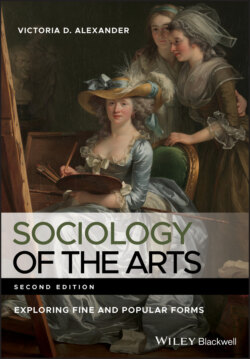Читать книгу Sociology of the Arts - Victoria D. Alexander - Страница 52
Elitism
ОглавлениеOther writers reject the critique of popular arts because they reject the elitist purveyors of the theories. They believe that the cultural critique is merely a moral panic—the situation that arises when elites worry about other people, couching it in terms of the degradation of the popular arts and therefore society (Cohen, 1972). The cultural critique, in this view, is a form of submerged class conflict. Ross (1989) links the cultural critique to the waning of the cultural authority of America intellectuals. No one likes to lose power or authority, and so they look for something to blame, and in so doing they reassert their lost authority. In the cultural critique, intellectuals pin the responsibility on popular culture, arguing that it erodes society, and then claim status based on their superior abilities to “see” that society’s problems are caused by popular culture.
Others point out that the cultural critiques of the past are forgotten, and so, in the future, will today’s concerns. In the 1930s, for instance, parents worried about the ill effects of children reading too many novels (Starr, 2004). Today, parents worry about too much screen time, while reading books is seen not only as unharmful, but as positively beneficial.
